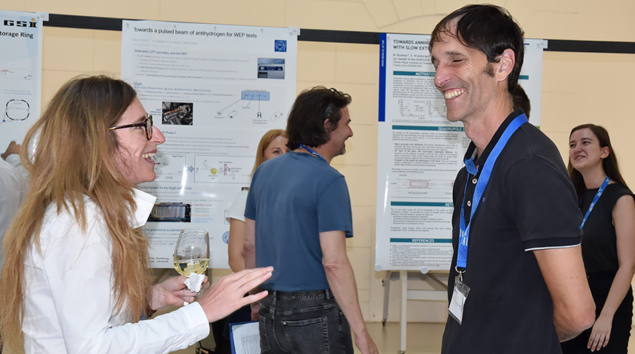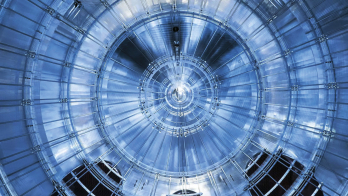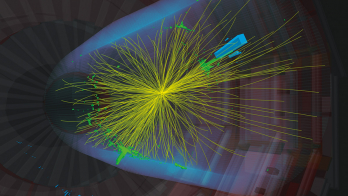
After one-year delay due to the COVID pandemic, the 8th edition of the International Symposium on Subatomic Physics (SSP2022) took place in Vienna from 29 August to 2 September. Organised by the Stefan Meyer Institute for subatomic physics (SMI) of the Austrian Academy of Sciences and hosted at the University of Applied Arts, the in-person conference attracted 74 participants.
The conference programme began with a warm welcome from Eberhard Widmann (Austrian Academy of Sciences) who was delighted to resume the SSP series, the last one held in Aachen in spring 2018. As proposed by the International Advisory Committee, the scientific programme this year focused more on fundamental symmetries and interactions in theory and laboratory experiments compared to previous editions and included topics such as dark matter and cosmology. 51 invited and contributed talks, as well as 17 posters were presented, highlighting scientific achievements worldwide.
These included topics on searches for lepton-flavour violation and symmetries in heavy quark decays at BELLE in Japan, BESIII in Beijing, muon-decay experiments at the Paul Scherrer Institute, and the first direct test of T and CPT symmetries in Φ decays at DAΦNE in Frascati. Prospects to discover physics beyond the Standard Model, such as the g-2 measurement at Fermilab, or at high-energy colliders were also presented, as well as searches for the electric dipole moments (EDM) of the neutron, deuteron, muon and in atoms and molecules. Double β-decay experiments, sterile-neutrino searches and flavour oscillations were also discussed. Results and upper limits on CPT tests with antihydrogen, muonium and positronium were reported.
The meeting ended with presentations on advanced instrumentation and on upcoming future facilities at PSI, DESY, Mainz university and J-PARC. Many participants from regions such as China attended the conference online. Discussions on various subjects followed during the poster session, where master and PhD students presented their work and results. Stefan Paul (TU Munich) gave a public lecture in the picturesque Festsaal of the Austrian Academy of Sciences about the shortest length scales that humankind has explored so far and how laboratory experiments test theoretical models describing the beginning of the universe.
SSP2022 was a successful and enjoyable conference, which created many fruitful and at times lively discussions in the field of symmetries in subatomic physics. The many contributions together with the social events around the conference programme provided an inspiring environment for animated discussions. SSP2022 benefited from being a relatively small-scale conference and the natural lightness it brings when meeting new colleagues and carrying out in-depth conversations on physics topics that we are passionate about.








